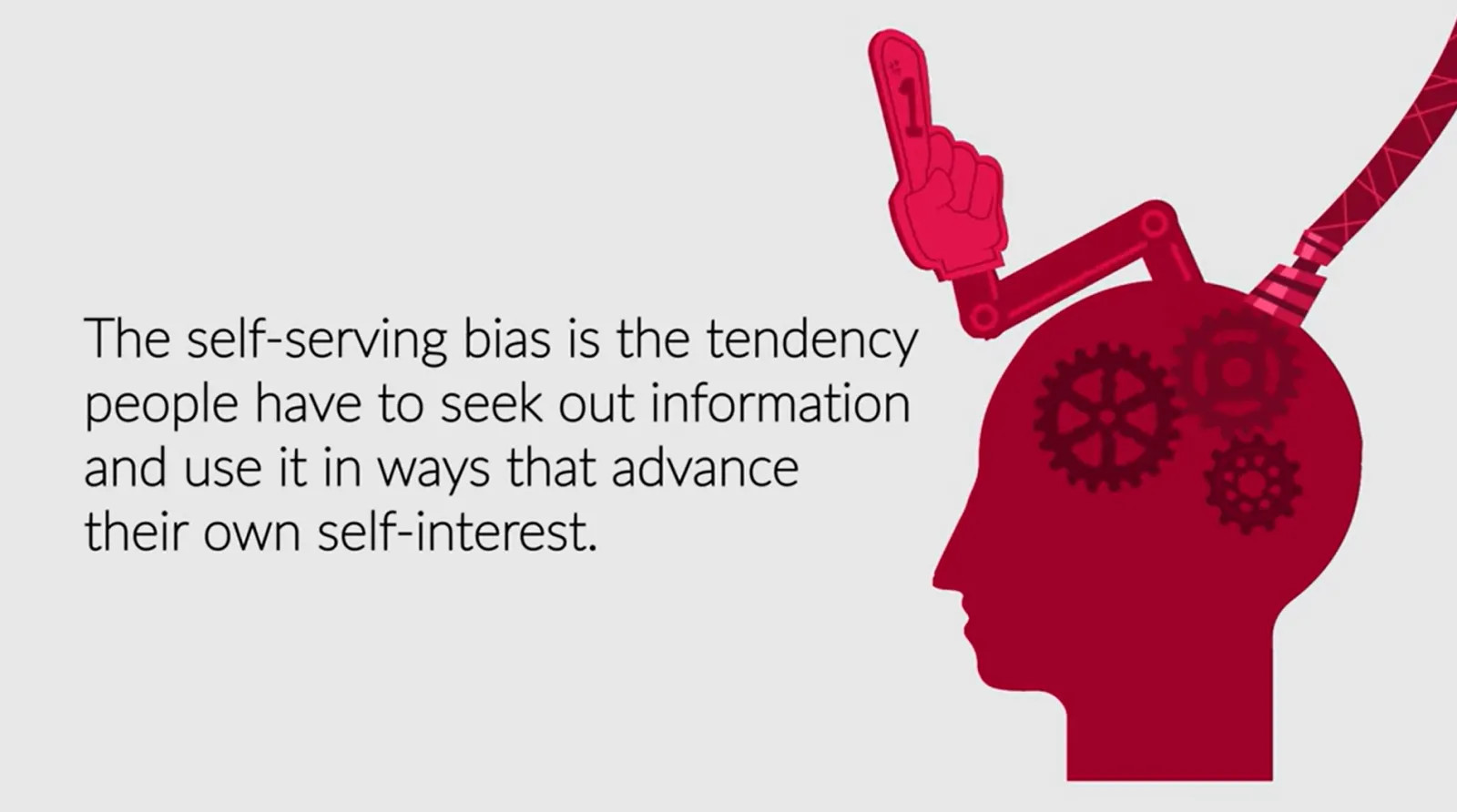It’s a common human tendency: when things go wrong for us, we often find external reasons to justify it. Think about a missed deadline at work. It’s easy to blame “unforeseen technical difficulties” or “lack of clear instructions,” subtly shifting responsibility away from ourselves. However, this leniency rarely extends to others. When a colleague misses a deadline, our internal narrative might be less forgiving, perhaps attributing it to their “lack of organization” or “poor time management.” This is a prime example of self-serving bias in action.
 Cognitive Bias: Brain Gears Symbolizing Self-Serving Bias in Decision Making.
Cognitive Bias: Brain Gears Symbolizing Self-Serving Bias in Decision Making.
Self-serving bias is a well-documented cognitive bias where individuals attribute their successes to internal factors and their failures to external circumstances. Essentially, we have a natural inclination to see ourselves in a positive light. This bias impacts how we perceive the Self-serving Meaning behind our actions versus the actions of others. For ourselves, we tend to emphasize external factors when explaining negative outcomes, protecting our self-esteem. Conversely, when judging others, we often overlook external pressures and focus on internal attributions, potentially judging them more harshly.
This bias can manifest in various ways. Consider project outcomes. When a team project succeeds, we might overemphasize our personal contributions, like “leadership and strategic vision,” potentially minimizing the efforts of team members. Conversely, if the project falters, we might point to market volatility or inadequate resources, deflecting personal accountability. This creates a double standard: credit is self-attributed, while blame is externally assigned.
To actively counter self-serving bias and foster a more balanced perspective, consider these strategies:
- Actively Seek Diverse Feedback: Engage with colleagues from varied backgrounds and with different expertise levels. Be open to constructive criticism, regardless of whether the outcome is positive or negative. Resist the urge to dismiss alternative viewpoints, and instead, see them as opportunities for growth and a more complete understanding.
- Acknowledge and Credit Contributions: Consciously recognize and appreciate the efforts of others. In team settings, highlighting individual contributions strengthens team morale and promotes a collaborative environment. This shared sense of accomplishment is crucial for sustained success and mutual respect.
- Employ Objective Evaluation Methods: Utilize objective metrics and criteria when assessing project success or individual performance. Seek external perspectives to gain a more impartial view. Engage in open discussions with neutral parties who can offer unbiased insights and help you evaluate situations more fairly.
Understanding self-serving bias is crucial for ethical behavior and fostering healthy relationships, both personally and professionally. By recognizing this inherent tendency, we can take proactive steps to mitigate its impact. Embracing feedback, giving credit where it’s due, and using objective evaluations are key actions towards cultivating fairness, accountability, and a more balanced understanding of our own actions and the actions of those around us. Remember, numerous resources are available to further your understanding of ethical practices and cognitive biases, including courses and materials offered by institutions like Ethics Unwrapped and LinkedIn Learning, which can provide valuable insights and tools for personal and professional development.
